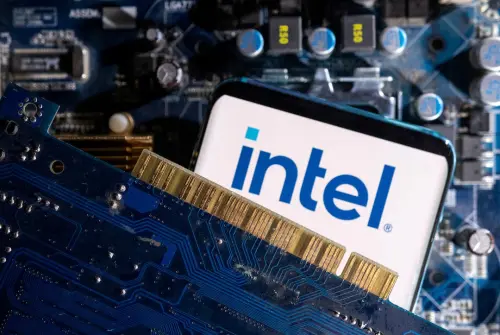On February 14, a White House official informed Reuters that President Donald Trump's administration might not back Intel's U.S. chip factories being controlled by a foreign entity. This follows a report by Bloomberg indicating that TSMC from Taiwan, the world's largest chipmaker, was contemplating acquiring a majority share in Intel's factories at Trump's behest.
The official stated that while foreign investment and construction in the U.S. are encouraged, the administration is hesitant to approve a foreign company managing Intel's factories. Previous reports had alluded to discussions between Trump's team and TSMC regarding a possible deal, with TSMC reportedly receptive.
The viability of such a deal remains uncertain but could offer financial relief to Intel. The company has faced challenges in capitalizing on advancements in AI and transitioning into a contract chip manufacturer. Intel's shares fell by 2.2% on Friday, contrasting with TSMC's U.S.-listed shares, which rose by approximately 1%.
The potential transaction may involve American chip designers acquiring stakes and assistance from the U.S. government, ensuring that the venture is not solely owned by a foreign entity. Baird also suggested the possibility of a jointly owned new entity by Intel and TSMC, with TSMC's engineers aiding in sustaining the factories.
This proposed collaboration would require substantial concessions from both sides. TSMC would need to adapt to Intel's operational methods, potentially sharing proprietary techniques. In turn, Intel would need to acknowledge significant changes to its manufacturing operations.
Despite potential benefits, the partnership raises questions about Intel's manufacturing strategy, considering that most chipmakers outsource production. Wedbush Securities analyst Matthew Bryson highlighted that Intel could shift towards a design-centric focus, resembling companies like Broadcom or AMD.
TSMC and Intel declined to comment on the matter. Intel, supported by the U.S. government, has been pivotal in onshoring crucial chip manufacturing. The company's innovative endeavors face high stakes with the success of its 18A chipmaking technology slated for this year.
